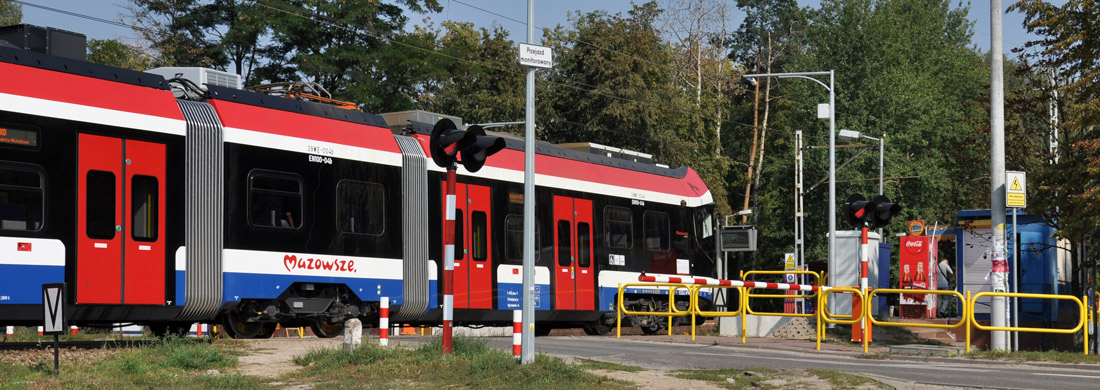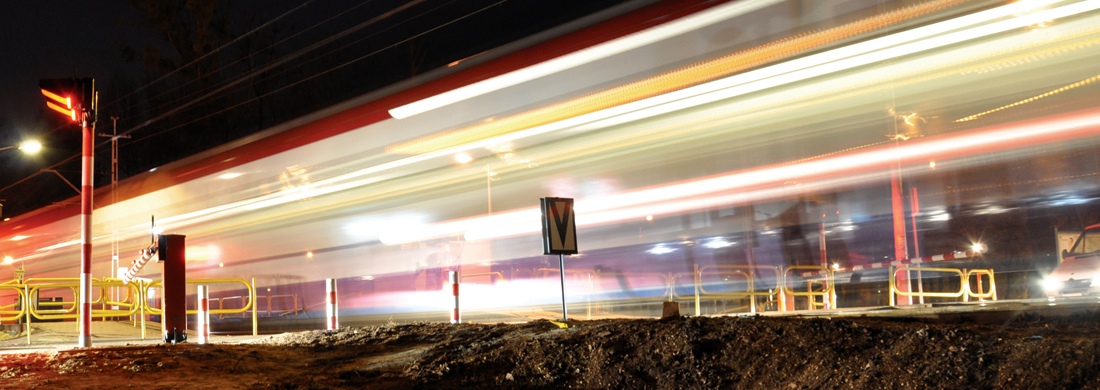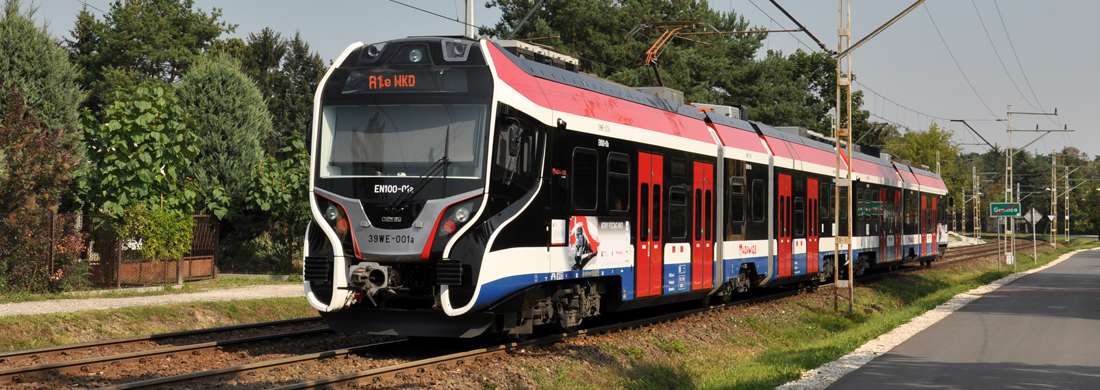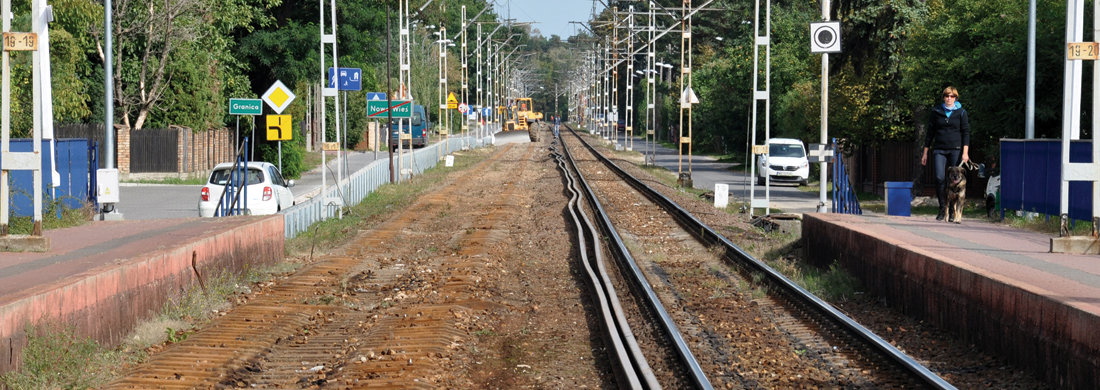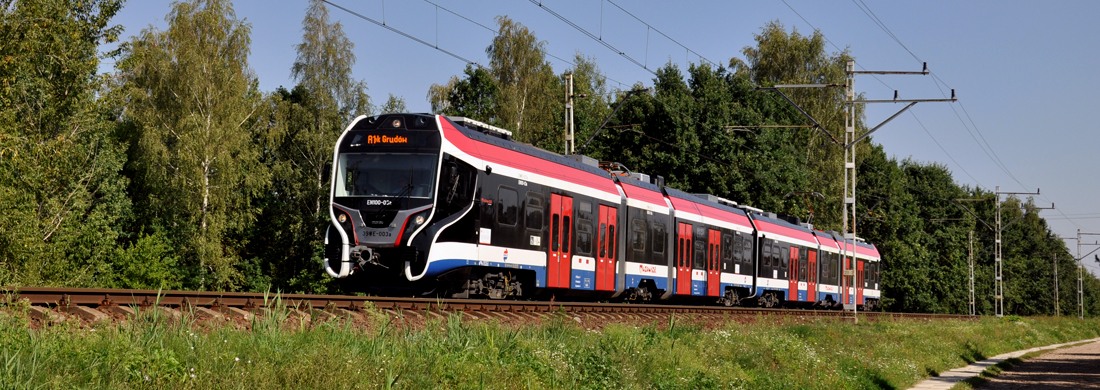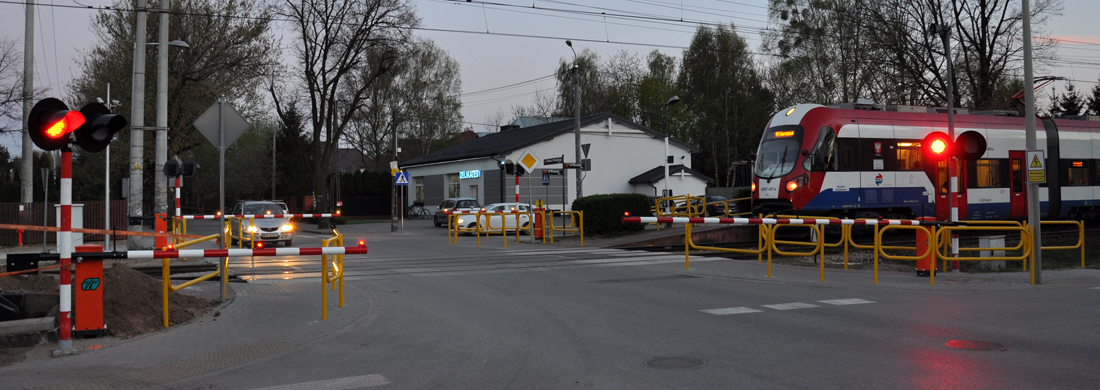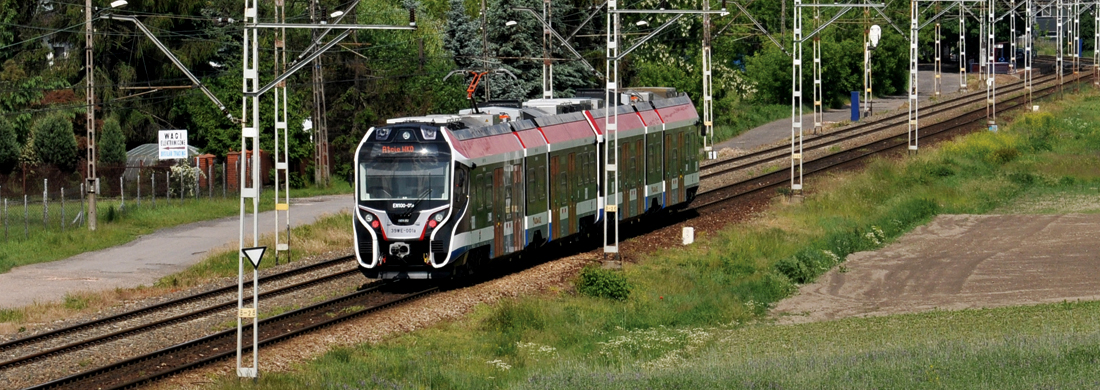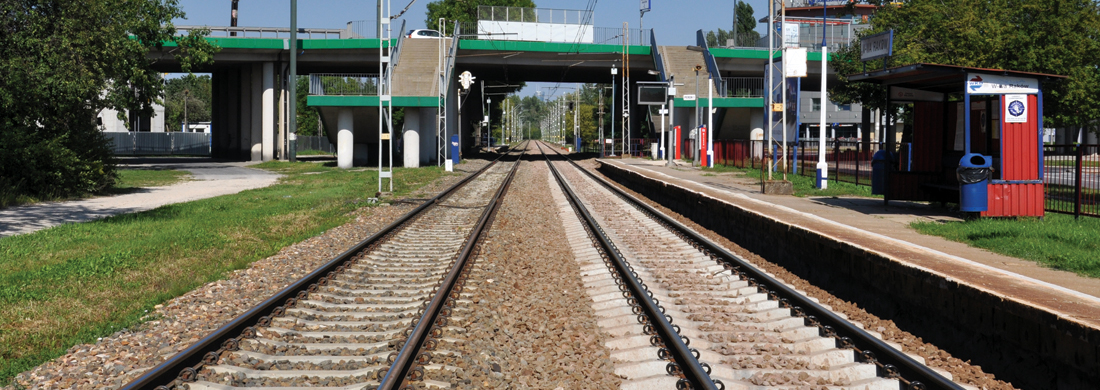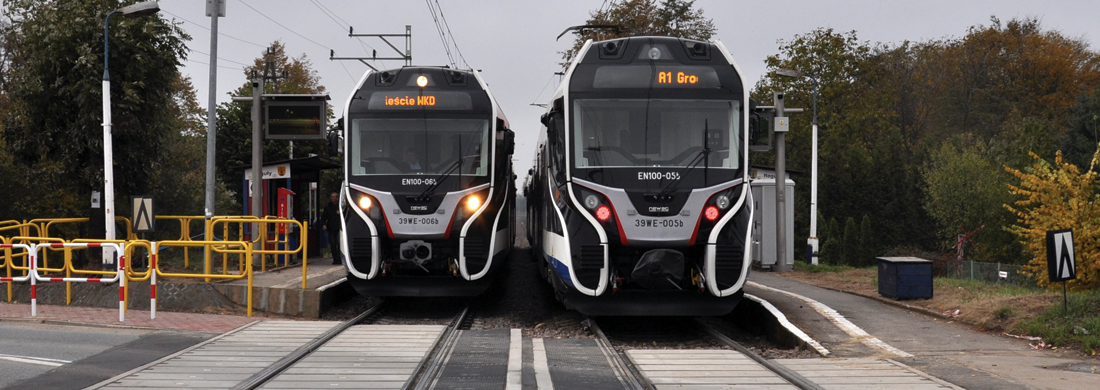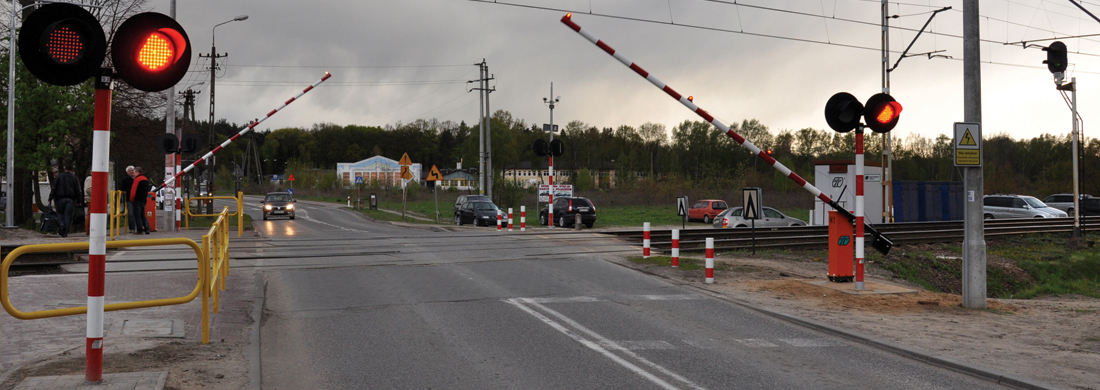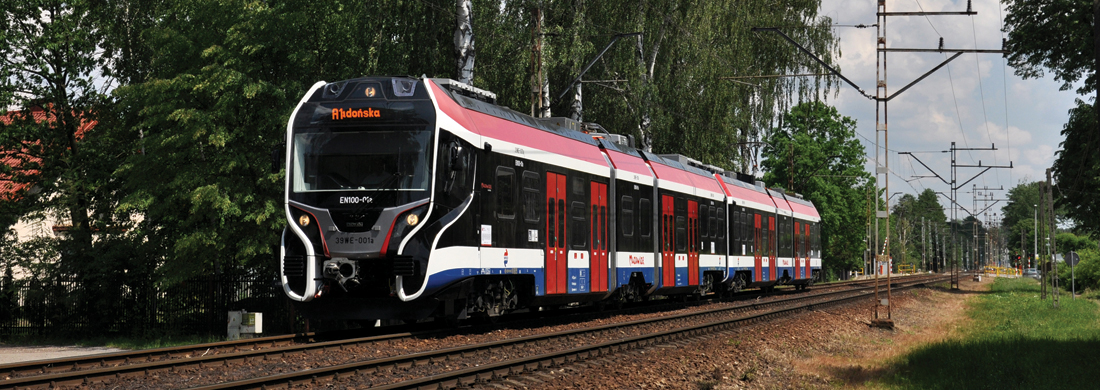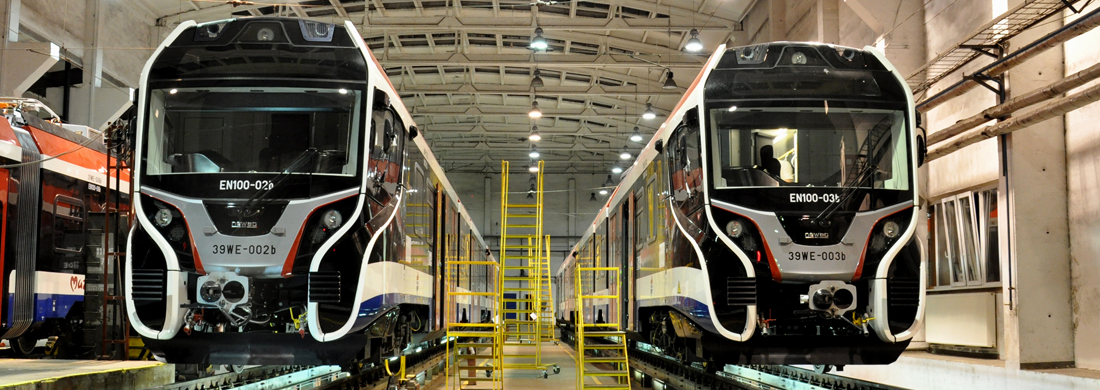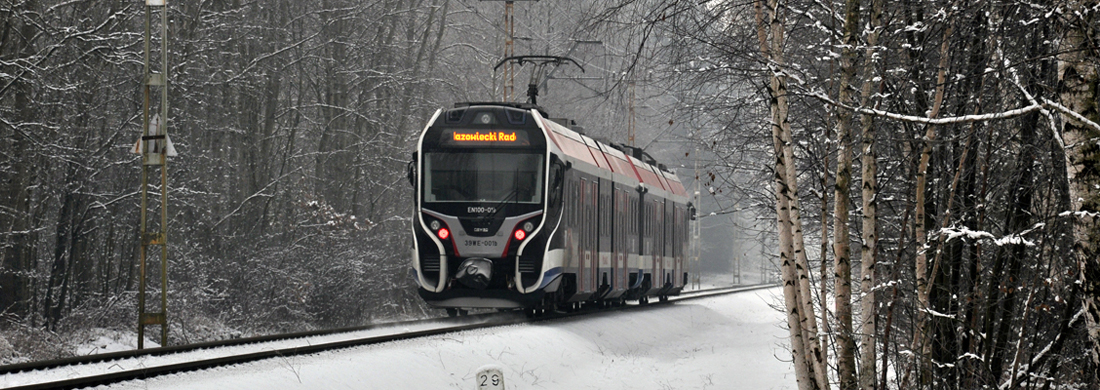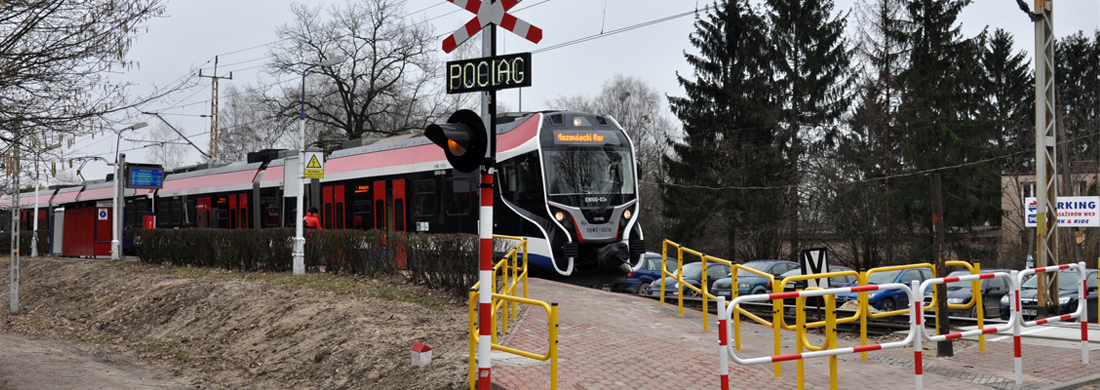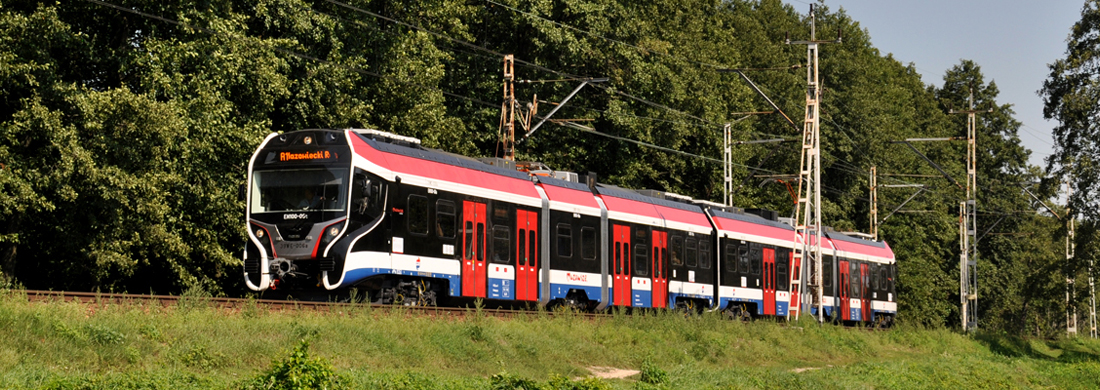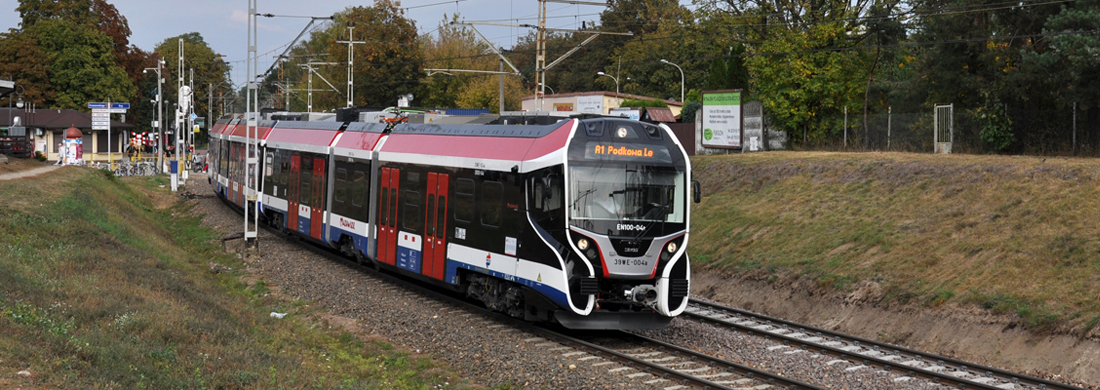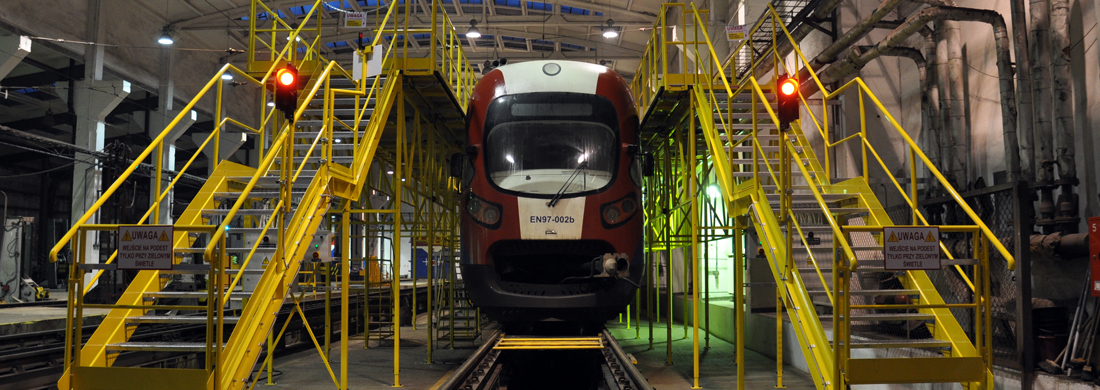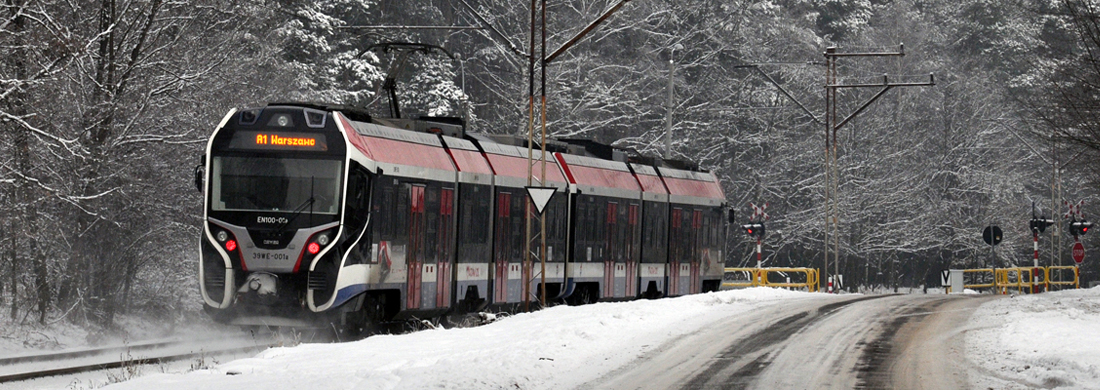The Warsaw Commuter Rail Project was launched to be co-financed within the framework of the Swiss-Polish Co-operation Programme. The Swiss financial contribution in the amount of over PLN 57.8 million has been allocated to the capital expenditures on new trains and implementation of the state-of-the-art monitoring and passenger information system for all of the halts along the WCR lines. The Project total value amounts to PLN 124.7 million and the Project implementation process will have been completed by June-end 2016.
Within the framework of the project „Development of the public transport in Warsaw metropolitan area through improvement of the WKD (Warsaw Commuter Rail) efficiency, reliability and safety”, 6 modern electric traction units will be purchased to service regional connections at the WCR lines. Furthermore, all the stations and halts will be equipped with electronic information boards, while cameras will be installed at all halts to improve passenger safety.
– Solutions for the transport-related problems in the Mazovian Region has always been one of our priorities. We are the only voivodeship in the country, that has fully taken over the responsibility for the rail transport in the region. For this purpose, we have set up two companies – the Mazowieckie Railways and the Warsaw Commuter Rail, the stakeholder of which is a consortium of the Regional Government and Municipalities located along the railway. Our rolling stock has been worn-and-torn. We have had to look for a variety of financial mechanisms to upgrade it. The funds of the Swiss-Polish Co-operation Programme has constituted invaluable aid to us. This is a great opportunity for the WCR to have totally modern railways – said Marshal Adam Struzik.
Implementation of the Project commenced on 1st June 2012 when the Project Agreement was concluded between the Ministry for the Regional Development and the Swiss State Secretariat for Economic Affairs. The Project will be implementable in two stages to be completed by 2016. By the end of 2013 the monitoring and passenger information system will have been implemented to provide electronic boards that will inform persons waiting for trains about train departure and arrival times. The second stage of the Project – the supply of a new rolling stock – is scheduled for the second half of 2015. The procurement dossiers are being currently developed for both investment tasks in order to announce the call for tenders.
- It is one of the two projects coming forward with the development of public transport carried out in the Mazovian Region. It is one of the key big-ticket projects in the country. A similar type of project is also carried out in Malbork by the Pomorskie Voivodeship Marshal Office. Our Regional Programme is specifically addressing infrastructural and environmental projects. The transport projects aim at taking over passengers from the wheeled transport to the rail transport. Improvement of public transport infrastructure contributes to the development and improvement of quality of services rendered in effect of the implementable projects should ultimately serve the purpose of achieving the target travel comfort to be enjoyed by the passengers – remarked Dominique Favre, the Director of the Swiss-Polish Co-operation Programme – the Embassy of Switzerland.
Execution of this investment will improve transport capacity and connectivity in six communes (Michałowice, Pruszków, Brwinów, Milanówek, Podkowa Leśna, Grodzisk Mazowiecki) and two districts of Warsaw (Włochy and Ochota). It will mean a better travel comfort and safety for passengers.
– The WCR project is unique in many respects. Both in terms of environmental protection, sustainable transport, as well as effective integration of the WCR’s railway lines with other transport systems in the agglomeration of Warsaw – said Paweł Orłowski, the Deputy Minister for Regional Development.
The tasks intended to be executed under the Project constitute one of the stages of comprehensive upgrade of the WCR transport system that will provide for integration with other means of public transport in conformity with the Development Strategy for the Mazovian Voivodeship. In November 2011 during the study visit the WCR representatives had a chance to learn about the success stories in this field that are characteristic for the public transport systems in Switzerland.
– I would like to thank the Swiss taxpayers for this exceptional support. It is not so usual or common that taxpayers choose to allocate as much financial assistance for societies of other countries. It is also worth to pay attention to the place the Project is executed in. Many investments in progress are implementable in the western or eastern part of Poland, and this one is located in the centre of the country and supports the agglomeration of Warsaw which encounters major transport problems – said Mariusz Kasprzyk, the Head of the Department of European Programmes at the Implementing Authority for European Programmes.
The total cost of the investment Project amounts to PLN 124.7 million, out of which PLN 57.8 million will be contributed within the framework of the Swiss-Polish Co-operation Programme.
– This project incorporates itself into a number of other investments carried out by the WCR. The rolling stock and infrastructure are upgraded due to the support from the Mazovian Regional Government and the bank borrowing extended by the European Investment Bank. This project will definitely improve the comfort and safety of travel on our railway. Due to the information system, our passengers will be kept informed about the departure and arrival times. We hope that we will also significantly improve our transport services, which would be impossible without the funds allotted within the framework of the Swiss-Polish Co-operation Programme. I would like to thank you very much for the support granted to the Company – said Grzegorz Dymecki, the Chief Executive Officer of the Warsaw Commuter Rail.
The Calendar of the Milestones for the Application Form filed by the WCR:
| 19.01.2009: | the Call for Projects launched under Priority Area No 2 „Environment and Infrastructure” of the Swiss-Polish Co-operation Programme (Focus Area “Rehabilitation and modernisation of basic infrastructure and improvement of the environment”, Objective 3: Improvement of management, safety, efficiency and reliability of local/regional public transport systems) |
| 20.03.2009: | Warsaw Commuter Railway Ltd filed its Project Outline with the Implementing Authority for European Programmes |
| 16.06.2009: | The Project Evaluation Commission under the Swiss-Polish Co-operation Programme recommended to co-finance the Project Outline submitted by the Warsaw Commuter Rail |
| 28.10.2009: | The Swiss State Secretariat for Economic Affairs (SECO) approved the Project Outline submitted by the Warsaw Commuter Railway and requested for submission of the Final Project Proposal |
| 30.09.2010: | Warsaw Commuter Rail Ltd filed its Final Project Proposal with the Implementing Authority for European Programmes |
| 21.11.2011: | The Swiss State Secretariat for Economic Affairs (SECO) approved the Final Project Proposal submitted by the Warsaw Commuter Rail |
| 01.06.2012: | Commencement of the Project Agreement between Switzerland represented by the Swiss State Secretariat for Economic Affairs (SECO) and the Republic of Poland represented by the Minister of Regional Development |
| 26.06.2012: | Commencement of the Project Co-financing Implementation Agreement between the Implementing Authority for European Programmes and the Warsaw Commuter Railway. |
The Passenger Information System will display train departure times on 56 platform electronic boards for passengers waiting at stations and halts according to the current timetables and current traffic flow capacity and volume.
Main functional criteria for the Passenger Information System:
- passenger information announced and displayed on platform displays in Polish and English with the possibility of adding other languages;
- train detection based on the data on the traffic flow and volume transmitted from the Main Dispatch Office and the GPS train location system;
- compatibility with external applications used for transmitting currently available passenger information – WWW, SMS.
The Monitoring System will cover the installation of at least 85 video cameras (fixed and revolving ones) monitoring the landing platforms. The main task of the system is to monitor the most important spaces at stations and halts i.e., the spaces available for passengers while waiting for the train and the entrances and exits of passengers to and from WCR trains and platforms.
The New Rolling Stock for the Warsaw Commuter Rail lines include electric units fitted for operations fed with 3000V of direct current.
The basic criteria to be met by the new rolling stock for the Warsaw Commuter Rail lines:
- Improvement of traction technical features – as far as acceleration and delay of braking are concerned;
- Adjustment to the existing technical back-up facilities;
- High flexibility to set in motion;
- Maximization of the space available for travellers.
| Pos. | Requirements for train car | Value of Parameters |
| 1. | Overall length | 60 000 mm |
| 2. | Minimum radius of arc | 22 m |
| 3. | Feed | 3000V DC |
| 4. | Axle system / proportion of number of driving axles to treads axles | Bo'+2'+Bo'+Bo'+2'+Bo' / 66% |
| 5. | Maximum cruising speed | 80 km/h |
| 6. | Acceleration of start-up (0-30km/h) by the assumed vehicle’s capacity | 1,2 m/s2 |
| 7. | Floor height over top of rail | 500 mm in entry zone |
| 8. | Total number of passengers | 500 (when full, 5 people/m2) |
| 9. | The number of places for people on wheelchairs | 4 |
| 10. | The number of places for bikes | 8 |
The Swiss-Polish Co-operation Programme is a form of foreign financial assistance awarded by Switzerland to Poland and 9 other EU Member States that joined the European Union on 1st May 2004. By the virtue of the International Agreement concluded on 20th December 2007 in Bern, over 1 billion of Swiss Francs will be assigned to the ten new Member States, out of which almost half of that amount (about CHF 489 million, that is about Euro 310 million) will be allotted to the financial assistance for Poland.
The aim of the Swiss help is to decrease socio-economic differences between Poland and better developed countries of EU, and also those on the territory of Poland – between city centers and structurally poorly developed regions. Public and private institutions and non-governemental organisations could apply for financing the projects by the Swiss-Polish Co-operation Programme.
The Programme covers all Poland where at least 40 % of means of the whole allocation will be supporting four southern-easter Voivodeships: Lublin, Małopolska, Podkarpacie, and Świetokrzyskie. Under the cooperation system there are 5 years of incurring loans and 10 years of expenses launched on 14 June 2007 i.e. on the day of allotting the financial help to Poland by the Swiss Parliament.
There were 14 calls for projects under the SPCP addressing, inter alia, the environment and infrastructure, regional development, health protection, scientific research, scholarships for scientists, support for non-governmental organisations, and venture capital fund. Until 14th June 2012, when the deadline to contract for expenditures expired, the Polish and Swiss Parties had signed 58 agreementsoverall accounting for the total financial allocation in the amount of CHF 489 million. To this end it was possible to contract 100% of the financial assistance assigned to support Poland.


